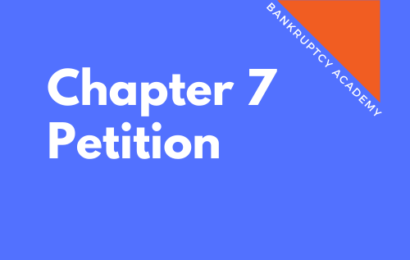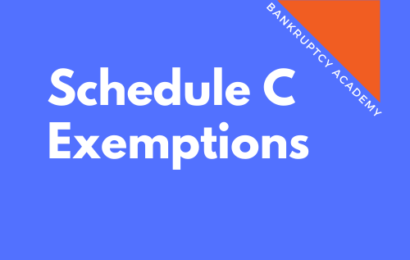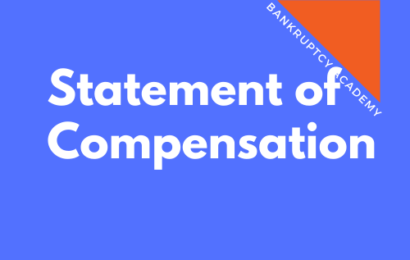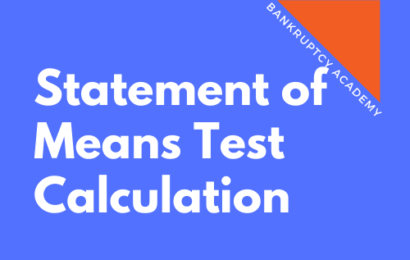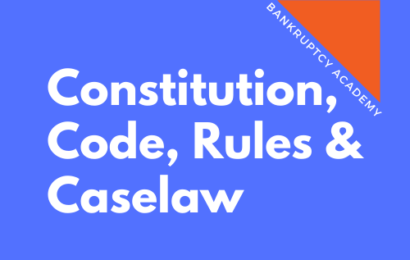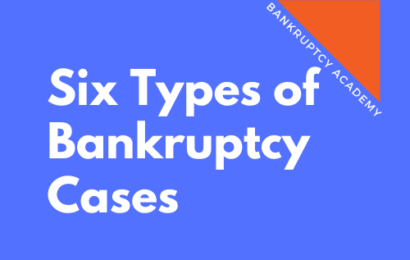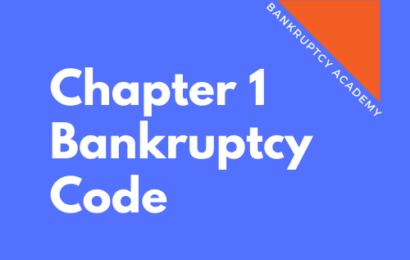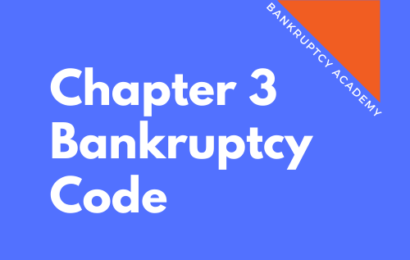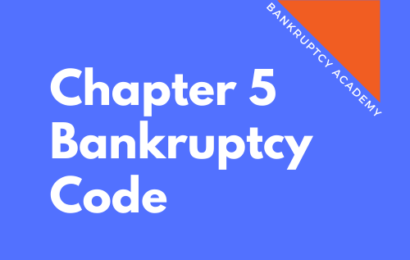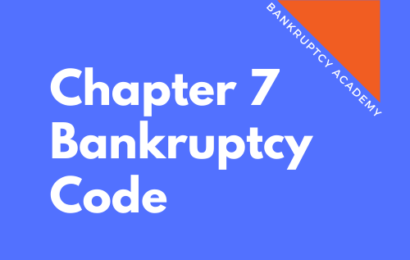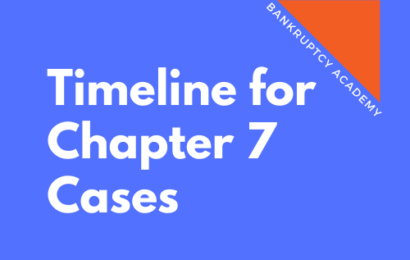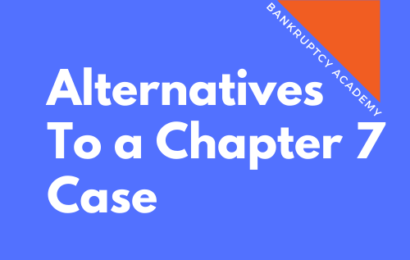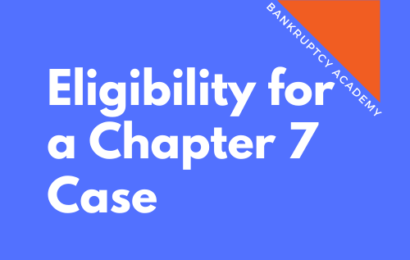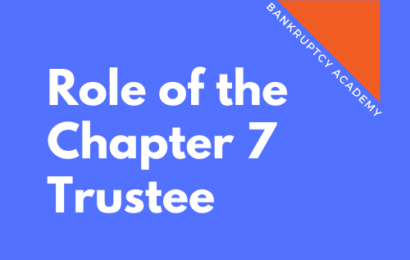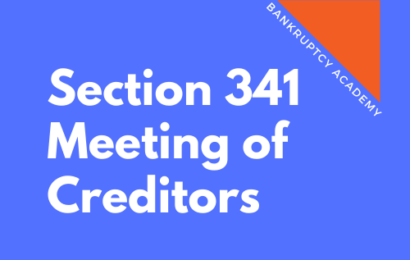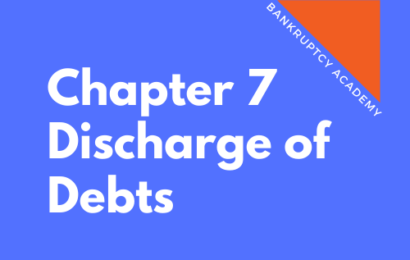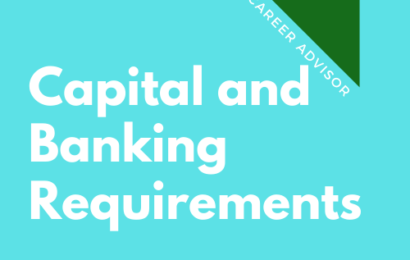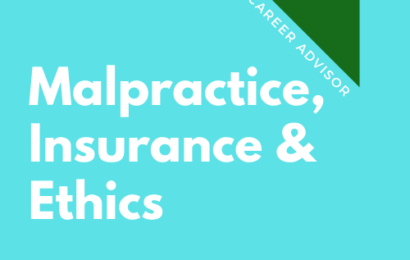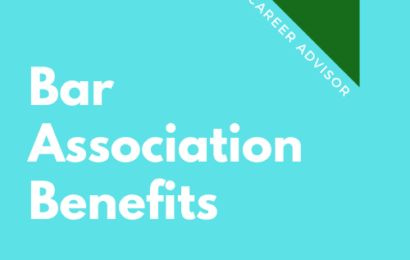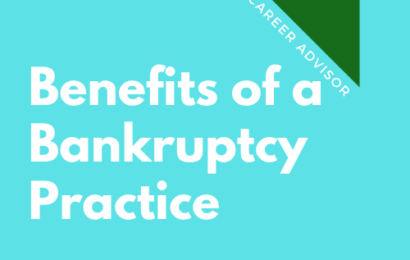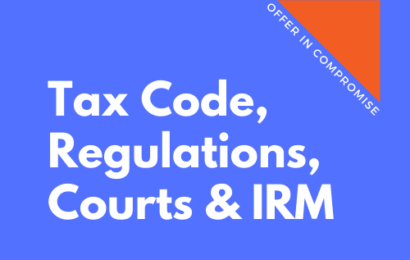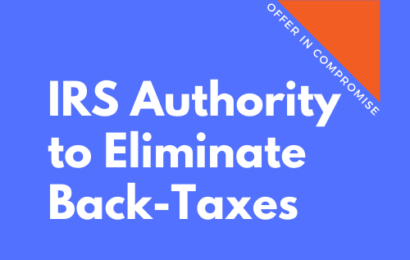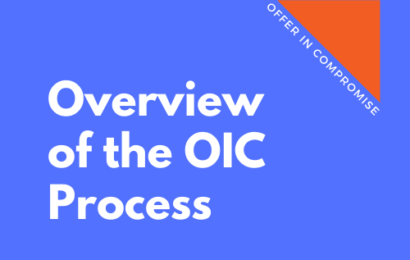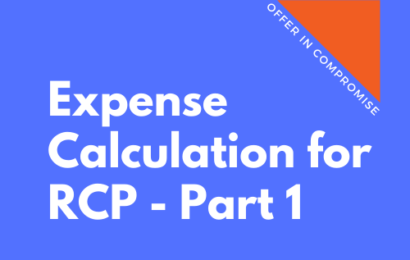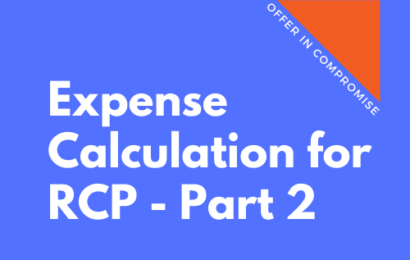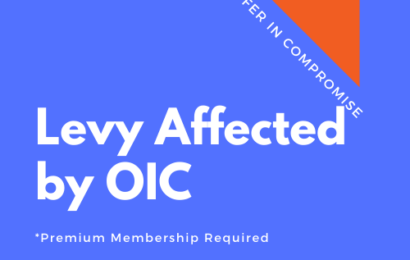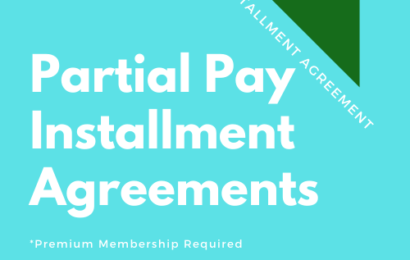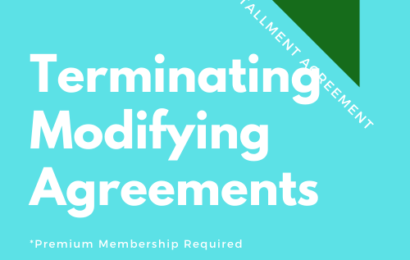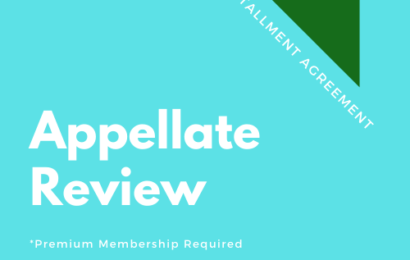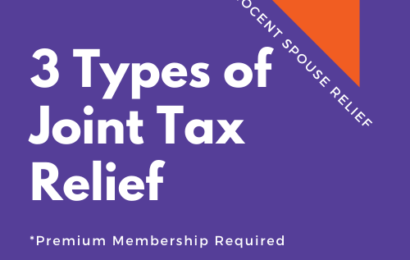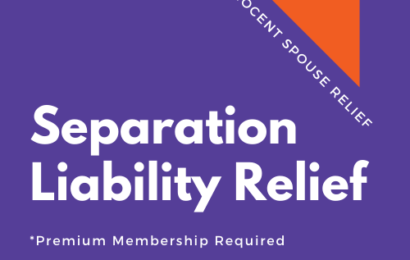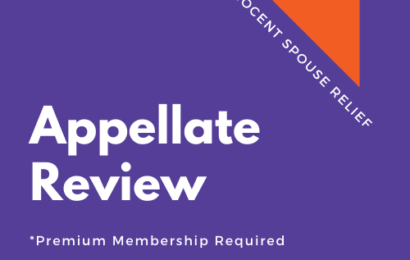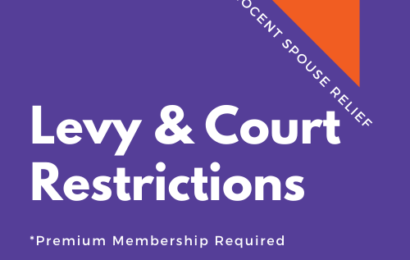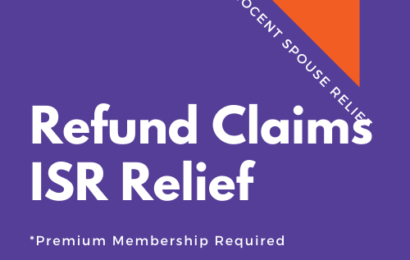All "Terminating" a Pending Offer "Withdrawing" a Pending Offer 341 Meeting of Creditors Accepting an Offer advertising alternatives to bankruptcy Appellate Review Attorney Client Privilege Automatic Stay Bank loans Banking Requirements Bankruptcy Code Bankruptcy Practice Bankruptcy Rules Bar Associations Billing Software Browsers Capital Requirements Certification Chapter 11 Chapter 13 client communication Client Confidentiality Client Development Client Questionnaire closing Co-Debtors Collateral Agreements Collection Process Collection Statute Expiration Date communication Compensation Computer Constitution Corporations Discharge disclosures Eligibility engagement letter Equitable Relief Ethics evaluation forms Examination Executory Contracts Exemptions Expenses Form 8857 Google Guaranteed Installment Agreement Income Injunction Innocent Spouse Relief Installment Agreements Insurance Internet Browser Leases Leasing Legal Structures Levy Limited Liability Companies LLCs Malpractice Marketing Means Test Meeting of Creditors Microsoft Modifying Installment Agreement non-engagement letter Non-priority Unsecured Creditors Non-Requesting Spouse objection Offer in Compromise Offer Processability Office Leasing OIC Scholar Partnerships Personal Property Petition Power of Attorney Power of Attorney and Third Party Authorizations Premature and Untimely Claims Priority Unsecured Creditors Profitability Property Questionnaire RCP Reasonable Collection Potential Refund Claims Regulations Schedule A/B Schedule D Schedule G Schedule H Schedule I Schedule J Section 341 Meeting of Creditors Secured Creditors selling Separation of Liability Relief Social Media Marketing Software Sole Proprietorships Statement of Financial Affairs Statement of Intent Statutes Stay Streamlined Installment Agreements Technology Terminating Installment Agreement Terms and Conditions Third Party Authorizations Timeline Trustee U.S. Trustee Unexpired Leases Unsecured Creditors Web Browser Websites
BK 101: Chapter 7 Petition
Chapter 7 Petition. Every individual debtor seeking Chapter 7 bankruptcy relief commences a case by filing a “petition.” 11 U.S.C. § 301. But what constitutes a petition? Unlike the U.S. district courts that giver great latitude to drafters of a civil complaint, the U.S. bankruptcy courts do not give similar latitude…
BK 102: Schedule A/B – Property
Schedule A/B: Property Every Chapter 7 debtor must file a schedule of assets that identifies both real property and personal property. 11 U.S.C. § 521(a)(1)(B)(i); Bankruptcy Rule 1007(b)(1)(A). Real property consists of land and anything permanently affixed to the land, homes, buildings, air rights above the land, and underground rights below the land. …
BK 103: Schedule C – Exemptions
Schedule C: Exemptions. Every Chapter 7 debtor is allowed, but not required, to file a schedule of exempt assets. Like the petition and Schedule A/B, Bankruptcy Rule 9009 requires a debtor to use a specific national form prescribed by the Judicial Conference of the United States when listing the debtor’s exemptions. Bankruptcy…
BK 104: Schedule D – Secured Creditors
Schedule D: Secured Creditors. Every Chapter 7 debtor must file a schedule of liabilities that includes both secured and unsecured creditors. 11 U.S.C. § 521(a)(1)(B)(i); Bankruptcy Rule 1007(b)(1)(A). This chapter focuses on the listing of secured creditors and the following chapter discusses listing unsecured creditors. The creditors listed in Schedule D are limited…
BK 105: Schedule E/F – Unsecured Creditors
Schedule E/F: Unsecured Creditors. Every Chapter 7 debtor must file a schedule of liabilities that includes both secured and unsecured creditors. 11 U.S.C. § 521(a)(1)(B)(i); Bankruptcy Rule 1007(b)(1)(A). This course focuses on the listing of unsecured creditors and the prior chapter discussed listing secured creditors. The creditors listed in Schedule E/F…
BK 106: Schedule G – Executory Contracts and Unexpired Leases
Schedule G: Executory Contracts and Unexpired Leases. Every Chapter 7 debtor must file a schedule of executory contracts and unexpired leases. Bankruptcy Rule 1007(b)(1)(C). This chapter focuses on the listing of debtor’s executory contracts and unexpired leases. What makes a contract an “executory” contract? An executory contract in the bankruptcy context has…
BK 107: Schedule H, Co-Debtors
Schedule H: Co-Debtors. Every Chapter 7 debtor must file a schedule of co-debtors (also spelled codebtor). Bankruptcy Rule 1007(a)(1). This chapter focuses on the listing of a debtor’s co-debtor. What constitutes a co-debtor? A co-debtor is one or more persons or entities that is primarily liable for the same debt for…
BK 108: Schedule I – Income
Schedule I: Income. Every Chapter 7 debtor must file a schedule of current income, commonly called Schedule I. 11 U.S.C. § 521(a)(1)(B)(ii); Bankruptcy Rule 1007(b)(1)(B). As discussed below, this statement reveals the debtor’s actual monthly income from all sources of income as of the petition date. Current income includes income from all…
BK 109: Schedule J – Expenses
Schedule J: Expenses. Every Chapter 7 debtor must file a schedule of current expenses, commonly called Schedule J. 11 U.S.C. § 521(a)(1)(B)(ii); Bankruptcy Rule 1007(b)(1)(B). Current expenses include actual expenses for rent, mortgages, utilities, food, clothing, medical and dental care, transportation, insurance, taxes, vehicle expenses, etc. Like the other schedules, Bankruptcy Rule…
BK 110: Statement of Compensation
Statement of Compensation. Chapter 7 attorney must file a disclosure of compensation for services rendered and reimbursement of expenses. 11 U.S.C. § 329(a); Bankruptcy Rule 2016(b). Like the schedules, Bankruptcy Rule 9009 requires a debtor to use a specific national form prescribed by the Judicial Conference of the United States when…
BK 111: Statement of Intent
Statement of Intention. Every Chapter 7 debtor must file a statement of intent with respect to the retention or surrender of property securing a creditor’s interest. 11 U.S.C. § 521(a)(2). For any encumbered asset debtor intends to retain, the debtor must state whether the debtor intends to reaffirm the debt or redeem the property. 11 U.S.C. §…
BK 112: Statement of Financial Affairs
Statement of Financial Affairs. Every Chapter 7 debtor is required to file a statement of the debtor’s financial affairs. 11 U.S.C. § 521(a)(1)(B)(iii); Bankruptcy Rule 1007(b)(1)(D). Like the Statement of Intent, the Bankruptcy Rules requires a debtor to use a specific national form prescribed by the Judicial Conference of the…
BK 113: Statement of Your Current Monthly Income
Statement of Your Current Monthly Income. Every Chapter 7 debtor must file a statement of current monthly income. 11 U.S.C. § 521(a)(1)(B)(v). A better term for this statement would have been average monthly income. As discussed below, this statement reveals the average monthly income from all sources of income during…
BK 114: Statement of Means Test Calculation
Statement of Means Test Calculation. Every Chapter 7 debtor must file Official Form 122A-2, Chapter 7 Means Test Calculation when his/her annualized average monthly income (as calculated in Part 1 of Official Form 122A-1, Chapter 7 Statement of Your Current Monthly Income) exceeds the state’s median annual income for households of…
BK 115: Bankruptcy Case Study 1 – Abraham Lincoln
Bankruptcy Case Study 1 – Abraham Lincoln The Schaller Bankruptcy Master Class provides five full-feature bankruptcy case studies. Each case study contains a fictitious client(s) filing for Chapter 7 bankruptcy relief. Some case studies involve an individual and some studies involve married people. Each study starts with a completed client-questionnaire…
BK 118: Bankruptcy Case Study 4 – John Kennedy
Bankruptcy Case Study 4 – John & Jacqueline Kennedy The Schaller Bankruptcy Master Class provides five full-feature bankruptcy case studies. Each case study contains a fictitious client(s) filing for Chapter 7 bankruptcy relief. Some case studies involve an individual and some studies involve married people. Each study starts with a…
BK 119: Bankruptcy Case Study 5 – George Washington
Bankruptcy Case Study 5 – George & Martha Washington The Schaller Bankruptcy Master Class provides five full-feature bankruptcy case studies. Each case study contains a fictitious client(s) filing for Chapter 7 bankruptcy relief. Some case studies involve an individual and some studies involve married people. Each study starts with a…
BK 120: Constitution, Statutes, Rules and Caselaw
Constitution, Bankruptcy Code, Bankruptcy Rules, and Case Law. Embedded in the United States Constitution is the genesis of bankruptcy protection in America. The Founding Fathers recognized the need for bankruptcy protection as an alternative to incarcerating indigent individuals in “debtors’ prison” – a common way to deal with unpaid debt in…
BK 121: Six Types of Bankruptcy Cases
Six Types of Bankruptcy Cases. The Bankruptcy Code provides six basic types of bankruptcy cases. Each type of bankruptcy case is codified in a distinct “chapter” of the Bankruptcy Code. 11 U.S.C. § 101 et seq. Each type of bankruptcy case is identified by the Bankruptcy Code “chapter” number that contains the…
BK 122: Chapter 1 of the Bankruptcy Code
Chapter 1 of the Bankruptcy Code The United States bankruptcy laws are codified at 11 U.S.C. § 101 et seq., which is commonly referred to as the Bankruptcy Code. The Code is segregated into various “chapters” just like a book: 1, 3, 5, 7, 9, 12, 13 and 15. The Bankruptcy…
BK 123: Chapter 3 of the Bankruptcy Code
Chapter 3 of the Bankruptcy Code Bankruptcy Code Chapter 3 relates to case administration. Section 301 et seq. provides rules about commencing a bankruptcy case, duties of the trustee and other officers, required meetings of creditors, and automatic stay/injunction rights. Not all sections of Chapter 3 will be addressed. Instead, concentration is…
BK 124: Chapter 5 of the Bankruptcy Code
Chapter 5 of the Bankruptcy Code Bankruptcy Code Chapter 5 provides for rights of creditors, duties of debtor, obligations of debtor’s counsel, and administration of the bankruptcy estate. Chapter 5 consists of sections 501 thru 562. Not all sections of Chapter 5 will be addressed. Instead, concentration is placed on those…
BK 125: Chapter 7 of the Bankruptcy Code
Chapter 7 of the Bankruptcy Code Bankruptcy Code Chapter 7 is different than Code chapters 1, 3 & 5. Think of Chapters 1, 3 and 5 as the internal gears that make the bankruptcy machine operate efficiently – the nuts and bolts of the bankruptcy process if you will. In…
BK 126: Timeline for a Chapter 7 Case
Timeline for a Chapter 7 case. Debtors are frequently apprehensive of and often overwhelmed by the bankruptcy process. So, a detailed explanation of the Chapter 7 timeline goes a long way to soothing a debtor’s anxiety. Understand the day-by-day operations of a typical Chapter 7 case.
BK 127: Alternatives to a Chapter 7 Case
Alternatives to a Chapter 7 Case. Filing bankruptcy is a last resort for most people. People in debt try to avoid bankruptcy by “tightening their belts” to reduce monthly expenses so the debts can be repaid over a period of time. Other people try increasing monthly income by working overtime or…
BK 128: Chapter 7 Eligibility
Eligibility for a Chapter 7 Case. To qualify for relief under Chapter 7 of the Bankruptcy Code, the debtor may be an individual, a partnership, or a corporation or other business entity. 11 U.S.C. § 101(41) & 11 U.S.C. § 109(b). Bankruptcy relief is available under Chapter 7 regardless of the amount of…
BK 129: Role of the U.S. Trustee
Role of the United States Trustee. A U.S. trustee is part of the United States Trustee Program established by the United States Department of Justice. The U.S. Trustee Program is a component of the Department of Justice that seeks to promote the efficiency and protect the integrity of the federal…
BK 130: Role of the Chapter 7 Panel Trustee
The Role of the Chapter 7 Panel Trustee. The U.S. trustee must be distinguished from a Chapter 7 panel trustee. This chapter focuses on the Chapter 7 panel trustee. The U.S. trustee in each district has assembled a pool of private people to act as Chapter 7 trustees. These people are typically attorneys. …
BK 131: Section 341 Meeting of Creditors
Section 341 Meeting of Creditors. The U.S. trustee appoints an impartial “Chapter 7 panel trustee” to administer the Chapter 7 case promptly after the bankruptcy petition is filed with the clerk of the court. 11 U.S.C. § 701. The Chapter 7 panel trustee must administer the case in accordance with the trustee’s statutory…
BK 132: The Automatic Stay
The Automatic Stay Injunction Protection. The “automatic stay” is a statutory injunction against efforts outside of bankruptcy to collect debts from a debtor who is under the protection of the bankruptcy court. Saint Catherine Hospital of Indiana v. Indiana Family and Social Services Admin., 800 F.3d 312, 315 (7th Cir. 2015). Generally,…
BK 133: Chapter 7 Discharge
Chapter 7 Discharge. The bankruptcy discharge varies depending on the type of case a debtor files: Chapter 7, 11, 12, or 13. This course’s primary focus is the discharge granted to an individual in a Chapter 7 case. What is a Discharge in Bankruptcy? A bankruptcy discharge releases the debtor from personal…
BK 134: NBA Bankruptcy Scholar Certificate Exam
NBA Bankruptcy Scholar Certificate Exam – 250 Questions. So, do you have what it takes to pass the 250-question exam and earn the Bankruptcy Scholar certificate from National Bankruptcy Academy? Start down the path toward being recognized by your peers and prospective clients as a top Chapter 7 consumer bankruptcy…
BK 135: SBM Bankruptcy Scholar Certificate Exam
SBM Bankruptcy Scholar Certificate Exam – 300 Questions. So, do you have what it takes to pass the 300-question exam and earn the Bankruptcy Scholar certificate from Schaller Bankruptcy Masterclass? Start down the path toward being recognized by your peers and prospective clients as a top Chapter 7 consumer bankruptcy…
MK 103: Client Development & Lead Generation
Client Development & Lead Generation Every lawyer who wants to generate bankruptcy clients, build a book of business, and build a successful legal practice should take this course. A lawyer who generates clients is called a “rainmaker.” A rainmaker understands this simple truth: Marketing = Clients = Profits = Success…
MK 104: Advertising for Clients
Advertising for Clients Advertising is an important component of legal marketing. This course considers ethical issues every lawyer must understand before starting to advertise for bankruptcy clients, including specific words and phrases that must appear in every advertising piece, as required by the U.S. Bankruptcy Code. Advertising is a relatively…
MK 105: Social Media Marketing
Social Media Marketing: Facebook, LinkedIn, Google Ads, YouTube This course explores social media as a vital part of marketing. Facebook’s business “Pages” and paid ads are explored with a virtual walk-through of the steps needed to create a Facebook Page for a bankruptcy lawyer and start a real-life paid search…
MK 106: Client Selling & Closing
Client Selling & Closing This book discusses the six-step sales process used to close prospective clients so they are delighted to engage the law firm and pay the attorney’s legal fees. First, the rainmaker conducts a Need Analysis during the sales process to determine a prospect’s true need and the real…
MK 107: Objections to Closing Prospects
Overcoming a Prospect’s Objection to Closing This course teaches attorneys how to overcome a prospect’s objection to closing. Learn that “no” does not mean “no” in the bankruptcy sales closing context. A rainmaker understands that “no” really means that a prospective client lacks sufficient information to feel comfortable engaging the…
MK 108: Pre-Engagement Client Communications
Pre-Engagement Client Communications Every attorney should study this course before seeking his/her first client. The first lesson begins with a focus on the ethical requirements surrounding communications with prospective clients. For example, bankruptcy attorneys must be aware of the ethical rules regarding advertising and compensation imposed by their state bar.…
MK 109: Post-Engagement Client Communication System
Post-Engagement Client Communication System This course focuses on client communications after the client has engaged the lawyer to file bankruptcy. The first lesson addresses written engagement letters, which are a must in every bankruptcy case. A written statement articulating the terms of the engagement reduces the possibility of misunderstanding and…
MK 110: The Bankruptcy Process
Understanding the Bankruptcy Process Studying these courses should help any attorney feel more competent to file his/her first Chapter 7 bankruptcy case. Attorneys who embrace these courses will be able to better understand the Chapter 7 legal requirements, anticipate bankruptcy issues, and carefully prepare the required petition, schedules, and statements.…
MK 111: Bankruptcy Trustees
Understanding the Role of the Bankruptcy Trustees The generic noun “trustee” can be confusing for those less familiar with the bankruptcy system. The term “trustee” can refer to either a United States trustee or a Chapter 7 “panel” trustee. The role of both trustees is discussed in this course.
MK 112: U.S. Bankruptcy Code
Exploring the U.S. Bankruptcy Code The Bankruptcy Code is the most authoritative source of bankruptcy law. The Bankruptcy Code is divided into “chapters” just like a book. For individuals seeking to discharge their debts without making any payments, the most relevant Bankruptcy Code chapters are Chapters 1, 3, 5 & 7.…
CA 101: Choosing a Legal Structure
Choosing the Correct Legal Structure. Lawyers starting a law firm must decide which legal structure is right for them and their law firm? They have gone to law school and taken all the classes required to graduate and passed their state’s bar exam. Now what? Many of these lawyers have worked for…
CA 103: Computer Technology
Technology Needs. Technological innovations start off as niceties, but gradually transform themselves into everyday necessities. This is true in our personal lives as well as our professional ones. Ask any law school graduate that has attended school within the last ten years, and he or she will advocate for the…
CA 104: Computer Software
Computer Software Issues. A lawyer must make the appropriate decisions related to the software applications that a lawyer will be using. This course is meant as a framework for addressing many of the software application decisions a lawyer will make when establishing a modern law firm. First, this lesson will generally…
CA 105: Website Requirements
Website Requirements. A compelling website is a necessity for any lawyer opening a law firm. Regardless of other marketing initiatives, enabling potential customers to either find the lawyer through a Google search or learn more about the law firm practice after seeing other marketing material is key to creating and developing new…
CA 106: Office Leasing
Office Leasing Concerns. Leasing office space is a major decision to be analyzed carefully. This course considers issues like location, cost, shared arrangements, furniture, IT, and other lease terms.
CA 107: Capital and Banking Requirements
Capital and Banking Requirements. Lawyers need at least $10,000 in seed money to capitalize a new law firm. More is better. A lot more is best. It matters less where the money comes from: savings, bank loan, credit cards, parents, friends, etc. A lawyer should expect to generate future legal…
CA 108: Malpractice, Insurance & Ethics
Malpractice, Insurance and Ethics. All lawyers must educate themselves to avoid malpractice. They should also consider malpractice insurance. Cut corners to minimize overhead when possible, but never skip malpractice insurance. It is affordable, monthly payment plans are available, and it is a necessity for practicing law. A malpractice policy may…
CA 109: Law Firm Marketing Tips
Law Firm Marketing Tips. Successful marketing is critical to starting a successful law firm. Marketing is a dirty word seldom used in law school. However, lawyers are constantly marketing and have done so in one fashion or another. Marketing takes many forms, some recognized as such and some forms that are not…
CA 112: Protecting Client Information
Protecting Client Information. Attorneys must protect the privacy and information of clients. Attorneys must design procedures to preserve and protect the confidential information regarding clients. Steps include securing the documents, storing the documents, and destroying the documents.
CA 113: Benefits of a Bankruptcy Practice
Benefits of Starting a Bankruptcy Practice. Generate a $100,000 in legal fees the first year and never look back! Sound impossible? No, it is not. The bankruptcy field is uniquely tailored for a young attorney starting a law firm. It is not difficult to master the substantive area of law,…
OIC Scholar Certificate Exam – 650 Questions
Offer in Compromise Scholar Certificate Exam – 650 Questions. So, do you have what it takes to pass the 650-question exam and earn the Offer in Compromise Scholar certificate from National Offer in Compromise Academy? Start down the path toward being recognized by your peers and prospective clients as a…
Intro 102: Statutes, Regulations, Courts & IRM
Statutes, Regulations, Courts & Internal Revenue Manual. Key to understanding tax solutions to IRS back-taxes is an understanding of the interplay between federal statutes, IRS regulations, court rulings, internal revenue manual, revenue rulings, revenue procedures, IRS announcements, and IRS Notices. This course separately examines each source of tax law. https://youtu.be/hoczX0oVBzI
Intro 103: Understanding the IRS Collection Process
Understanding the IRS Collection Process. https://youtu.be/qn3hMR9pjOk This course provides a brief overview of the IRS collection process. It does not provide strategies or exceptions to the rule. Later courses provide a greater explanation of these issues. The collection process starts after a taxpayer files a tax return without full payment…
OIC 101: IRS Authority to Eliminate Back-Taxes
IRS’ Authority, Motivation & Basis to Eliminate Back-Taxes. https://youtu.be/rwKeaiLO9xY An Offer in Compromise is an agreement between a taxpayer and the IRS that settles a tax liability for payment of less than the full amount owed. IRM § 5.8.1.2.1 (09-23-2008); Adamowicz v. US, 08-888C, Pg. 5 (D.C. Ct. Fed. Cl. 11/21/2011). …
OIC 102: Overview of the OIC Application Process
Overview of the Offer in Compromise Application Process. https://youtu.be/2FIA2Rv94cY This course focuses on a taxpayer’s ability to eliminate past-due federal income tax liability by establishing a repayment plan through the IRS “Offer in Compromise” program, which is commonly known as the “Fresh Start Initiative.” An overview is presented to help navigate…
OIC 103: Who Submits the OIC Application?
Who is the Proper Party to Submit the OIC Application? https://youtu.be/sW6KfFiK8wo Before filing a formal Offer in Compromise application, a taxpayer may request a meeting in the IRS office which would have jurisdiction over the offer to explore the possibility of compromising unpaid tax liability. 26 C.F.R. § 601.203(d). The Offer…
OIC 105: Is the OIC Offer “Processable?” – Part 1
Is the OIC Offer Submitted “Processable?” – Part 1. https://youtu.be/RGivexRiG_0 The IRS receives the taxpayer’s offer. The first step it takes is to determine if the submitted offer is “processable.” This issue is divided into two separate courses. Part 1 addresses issue relating to the taxpayer’s ability to fully pay…
OIC 106: Is the OIC Offer “Processable?” – Part 2
Is the OIC Offer Submitted “Processable?” – Part 2. https://youtu.be/RGivexRiG_0 The IRS receives the taxpayer’s offer. The first step it takes is to determine if the submitted offer is “processable.” This issue is divided into two separate courses. Part 1 addresses issue relating to the taxpayer’s ability to fully pay…
OIC 107: Offer Amount Formula
Offer in Compromise Offer Amount Formula. https://youtu.be/U4zEn2bHWC0 The three types of Offer in Compromise are as follows: (a) compromise based on “doubt as to collectibility”; (b) compromise based on “doubt as to liability”; and (c) compromise that promotes effective tax administration. 26 C.F.R. § 301.7122-1(b); Johnson v. Commission of Internal…
OIC 108: Asset Valuation for RCP – Part 1
Asset Component of RCP Formulas – Part 1. https://youtu.be/j2pMb1-OM-4 This Course focuses on Part 1 of the “asset” component of the RCP formulas or “,” including identifying and valuing the taxpayer’s assets. The “asset” component of the RCP formulas represents the realizable net equity in the taxpayer’s assets. The realizable…
OIC 109: Asset Valuation for RCP – Part 2
Asset Component of RCP Formulas – Part 2. https://youtu.be/j2pMb1-OM-4 This Course focuses on Part 2 of the “asset” component of the RCP formulas or “,” including identifying and valuing the taxpayer’s assets. The “asset” component of the RCP formulas represents the realizable net equity in the taxpayer’s assets. The realizable…
OIC 111: Expense Calculation for RCP, Part 1
Expense Component of RCP Formulas – Part 1. https://youtu.be/OJCnBlwUdu8 This course focuses on Part 1 of the “allowable monthly expenses” component of the “Future Income” calculation for the RCP formulas. The allowable monthly expense analysis determines the “allowability” of a taxpayer’s monthly expenses. The next course, Part 2, focuses on…
OIC 112: Expense Calculation for RCP, Part 2
Expense Component of RCP Formulas – Part 2. https://youtu.be/OJCnBlwUdu8 This course focuses on Part 2 of the “allowable monthly expenses” component of the “Future Income” calculation for the RCP formulas. The allowable monthly expense analysis determines the “allowability” of a taxpayer’s monthly expenses. The prior course, Part 1, focused on…
OIC 116: Collateral Agreements
Collateral Agreements. Treasury regulation 26 C.F.R. § 301.7122-1(e)(2) states: “As additional consideration for the acceptance of an offer to compromise, the IRS may request that taxpayer enter into any collateral agreement or post any security which is deemed necessary for the protection of the interests of the United States.” 26…
OIC 118: Terminating a Pending Offer
IRS Terminating a Pending Offer. An Offer in Compromise application can be “terminated” while the IRS is considering the application. A “termination” is defined as a closing of the Offer in Compromise application review process due to the death of the taxpayer. IRM § 5.8.7.1.6(1) (12-20-2018). The IRS must terminate its…
OIC 119: Withdrawing a Pending Offer
Taxpayer “Withdrawing” a Pending Offer. An Offer in Compromise application can be “withdrawn” by the taxpayer while the IRS is considering the application. The withdrawal of an application closes the Offer in Compromise application review process. There are two kinds of withdrawn offers: voluntary and mandatory. IRM § 5.8.7.4(1) (09-23-2008).…
OIC 121: Rejecting a Pending Offer
“Rejecting” a Pending Offer. The IRS can “reject” a processable Offer in Compromise application for many reasons. The IRS defines “reject” as a non-acceptance recommendation of any OIC offer that includes appellate rights. IRM § 5.8.7.1.6(1) (12-20-2018). The rejection of an application closes the Offer in Compromise application review process. …
OIC 122: Accepting a Pending Offer
“Accepting” a Pending Offer by the IRS. The decision whether to “accept” an offer to compromise is within the IRS’ discretion and must be based upon consideration of all the facts and circumstances. 26 C.F.R. § 301.7122-1(c)(1); Johnson v. Commission of Internal Revenue, 136 T.C. 475, 485 (2011); Christopher Cross, Inc.…
OIC 126: Appellate Rights
Appellate Rights Relating to OICs. This course discusses appellate rights in the Offer in Compromise context. Appellate rights are better understood when segregated into three issues: (1) appellate rights relating to a pre-rejection “independent administrative review”; (2) appellate rights following a collection due process determination (i.e. offer made as part of…
OIC 127: Levy Affected by OIC
Levy Affected by OIC. Taxpayers are not protected from the IRS collection apparatus while contemplating or completing an Offer in Compromise application. Similarly, taxpayers are not automatically protected from levy by submitting an Offer in Compromise application. “Submission of an Offer in Compromise does not automatically stay collection of an…
OIC 128: OIC Affects an Installment Agreement
Installment Agreements Affected by OIC. Is a taxpayer required to continue making installment agreement payments if the taxpayer plans on filing an Offer in Compromise? Yes, is the simple answer because the Offer in Compromise application has not yet been submitted and has not yet been approved for processing by the IRS. …
IA 101: Routine Installment Agreements
Routine Installment Agreements. The Federal government raises money to fund governmental operations through tax revenues collected by the IRS. Taxpayers are required to voluntarily comply with the Tax Code, including filing returns and paying taxes. The IRS wants full payment of the tax liability ASAP. The IRS encourages taxpayers to pay…
IA 102: Levy Protection with Installment Agreements
Levy Protection Afforded by Installment Agreements. Installment agreements are employed to shield taxpayers from the IRS’ dreaded levy apparatus while paying back-taxes through a systematic repayment plan. The IRS’ most lethal collection weapon is the feared LEVY. The IRS uses the levy as a sword against taxpayers by seizing taxpayers’ money…
IA 103: Guaranteed Installment Agreements
Guaranteed Installment Agreement. The “Guaranteed” installment agreement program is one of the IRS’ special installment agreement programs. Other special programs with their own specific criteria discussed elsewhere include “Streamlined” installment agreements, “In-Business Trust Fund Express” installment agreements, and “Partial Payment” installment agreements. As discussed in a previous course, Congress granted…
IA 104: Streamlined Installment Agreements
Streamlined Installment Agreement. The “Streamlined” installment agreement program is another of the IRS’ special installment agreement programs. Other special programs with their own specific criteria discussed elsewhere include “Guaranteed” installment agreements, “In-Business Trust Fund Express” installment agreements, and “Partial Payment” installment agreements. The “Streamlined” installment agreement program has many helpful…
IA 105: In-Business Trust Fund Express Installment Agreements
In-Business Trust Fund Express Installment Agreement. The “In-Business Trust Fund Express” installment agreement program is another of the IRS’ special installment agreement programs. Other special programs with their own specific criteria discussed elsewhere include “Guaranteed” installment agreements, “Streamlined” installment agreements, and “Partial Payment” installment agreements. The “In-Business Trust Fund Express” installment agreement…
IA 106: Partial Payment Installment Agreements
Partial Payment Installment Agreements. Is your client unable to pay the back-taxes in full prior to the collection statute expiration date? Then all installment agreement programs discussed in earlier courses are of no use – because those installment agreements require the taxpayer to fully pay the tax liability prior to…
IA 110: IRS Acceptance & Rejection Determinations
IRS Acceptance & Rejection Determinations. Acceptance or rejection of a proposed “routine” installment agreement is based on analysis of (a) compliance with filing and payment requirements, (b) collection information statements, and (c) taxpayer provided documentation. As explained in other lessons, special criteria exist for those taxpayers who qualify for Guaranteed,…
IA 112: Appellate Review
Appellate Review. The Tax Code requires the IRS to conduct an “independent administrative review” before the rejection of an installment agreement is communicated to the taxpayer. 26 U.S.C. § 7122(e). Although the intention to recommend rejection should be relayed to the taxpayer, actual rejection of a proposed agreement must not be…
ISR 101: 3 Types of Relief from Joint and Several Liability
Three Types of Relief from Joint and Several Liability. Many married taxpayers choose to file a joint tax return because of benefits this filing status affords them but ignore the detriments. When filing jointly, both taxpayers are jointly and severally liable for the tax and any additions to tax, interest, and penalties…
ISR 103: Separation of Liability Relief
Separation of Liability Relief. Congress has authorized “Separation of Liability Relief” for qualifying spouses to relieve them from certain joint and several tax liability related to a tax “deficiency.” 26 U.S.C. § 6015(c). The Tax Code defines “deficiency,” generally, as the amount by which the tax imposed by IRS Subtitle A…
ISR 104: Equitable Relief
Equitable Tax Relief. Congress has authorized “Equitable Relief” for qualifying spouses to relieve them from certain joint and several tax liability related to a tax deficiency and/or underpayment. 26 U.S.C. § 6015(f). Equitable Relief also applies to penalties and interest when relief is granted for the underlying item. IRM § 25.15.12.20.3(5)…
ISR 105: Form 8857, Request for Innocent Spouse Relief
IRS Form 8857, Request for Innocent Spouse Relief. A taxpayer seeks relief from joint and several liability by filing IRS Form 8857, Request for Innocent Spouse Relief. A Requesting Spouse may seek relief asserting one or more bases. A Requesting Spouse may submit a single claim (a) electing relief under…
ISR 106: Premature & Untimely Claims
Premature and Untimely Claims. A Requesting Spouse electing Innocent Spouse Relief and/or Separation of Liability Relief or requesting Equitable Relief must be cognizant of the window of opportunity. Elections and requests can neither be made prematurely nor untimely. Premature claims are discussed first, followed by a discussion of what constitutes…
ISR 107: Appellate Review
Appellate Review. This course discusses a Requesting Spouse’s appellate rights both (a) when the IRS fails to issue a “preliminary” determination within six (6) months of the election for Innocent Spouse Relief and/or Separation of Liability Relief, or request for Equitable Relief, and (b) after an IRS determination denying the…
ISR 108: Participation by Non-Requesting Spouse
Non-Requesting Spouse’s Participation. Conflict between the Requesting Spouse and the Non-Requesting Spouse is almost inevitable. Afterall, the Requesting Spouse is attempting to shift the joint and several tax burden onto the sole shoulders of the Non-Requesting Spouse. This burden shift request can make the Requesting Spouse unpopular in the eyes of…
ISR 109: Levies, Seizure & Court Proceedings Restricted
Levies, Seizure & Court Proceedings Restricted. The IRS’s ability to collect back-taxes is restricted when a Requesting Spouse files a claim with the IRS for Innocent Spouse Relief, Separation of Liability Relief, or Equitable Relief.
ISR 110: Installment Agreements
Installment Agreement Affected by Request for Relief. Some taxpayers do not know their tax options and contact the IRS for an installment agreement after receiving notice from the IRS that an audit revealed a tax deficiency due to a spouse’s failure to report income or improper deduction claim. This could be a…
ISR 111: Refund Claims
Refund Claims Made by an Innocent Spouse. The Requesting Spouse seeking relief from joint and several liability must be able to distinguish between civil claims for tax refunds and civil actions for tax refunds. Civil claims for tax refund are made administratively with the IRS utilizing IRS Form 8857. Civil…
POA 101: Power of Attorney
Power of Attorney — Form 2848. This course focuses on Form 2848, Power of Attorney and Declaration of Representation. A power of attorney is the taxpayer’s written authorization for an individual (called a “representative”) to receive the taxpayer’s confidential tax information from the IRS. It also authorizes the representative to…

